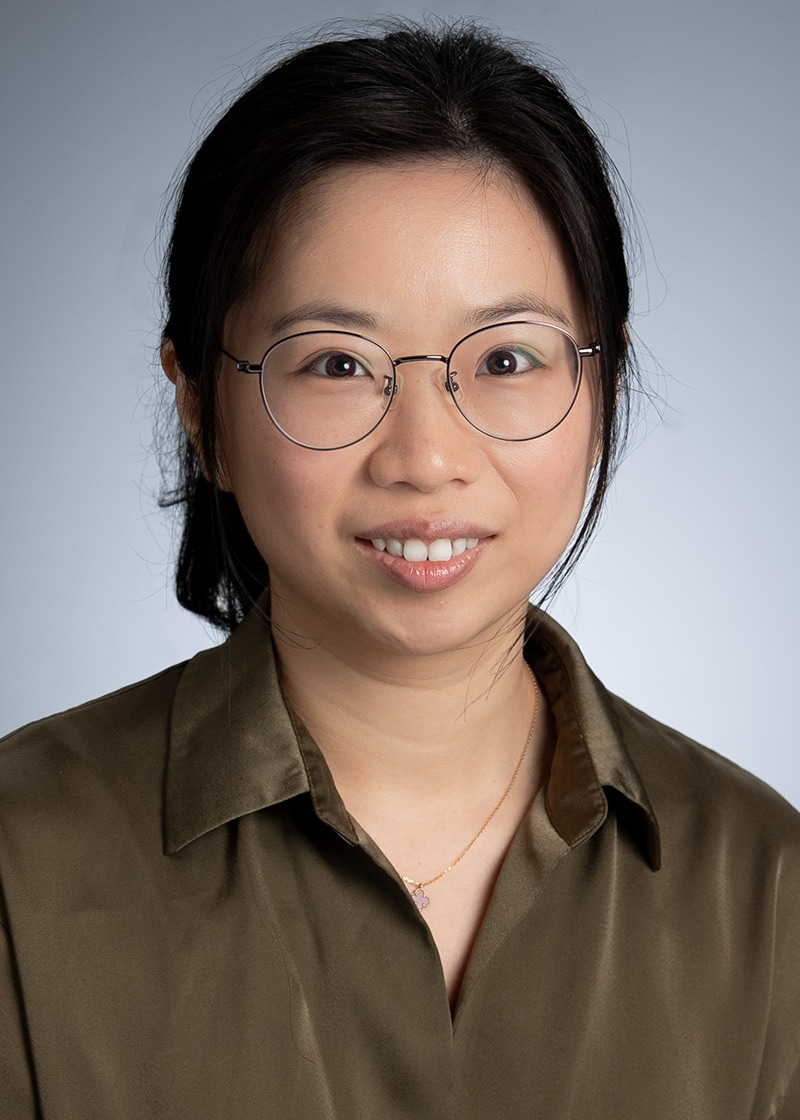What brought you to the UAB School of Public Health?
I was drawn to the UAB School of Public Health because of its outstanding reputation in public health research and the opportunity to work with the incredible cohorts UAB is involved in, such as REGARDS and CARDIA.
What is the broad focus of your research?
I’m a genetic and molecular epidemiologist, and my work focuses on using ‘omics’ approaches (genomics, metabolomics and proteomics) to identify key determinants of multifactorial diseases such as obesity, cardiovascular disease and diabetes. My goal is to improve prediction, prevention and treatment through the implementation of precision health strategies.
Where did you receive your training and degrees?
I received my Bachelor of Medicine from Peking University Health Science Center in Beijing, China, and went on to earn a MSc in Nutritional Epidemiology at Wageningen University in the Netherlands. I then completed my PhD training in Epidemiology at the University of Texas Health Science Center at Houston, followed by a postdoctoral fellowship at the Icahn School of Medicine at Mount Sinai in New York.
What is the most exciting project you are currently working on?
I'm very excited to start working on a project that aims to improve the risk assessment of future CHD by leveraging novel genomic approaches and advanced machine learning techniques in EHR-linked diverse populations.
What is your favorite self-authored manuscript?
I always like my new papers! The most recent one, Genetic subtyping of obesity reveals biological insights into the uncoupling of adiposity from its cardiometabolic comorbidities, has been published in Nature Medicine this month. In this paper, we identified genetic variants in 205 regions in the genome that are associated with higher body fat but better metabolic health. We developed a genetic risk score that combines the effects of these variants. Individuals with a higher genetic score have a higher obesity risk but lower risk of diabetes, hypertension, lipid problems and heart disease.
What professional accomplishment are you most proud of so far in your career?
I am most proud of my perseverance and academic journey—from growing up in a small city in China, with no family background in academia, to becoming an assistant professor at UAB.
What is the coolest training or program you've been a part of, or your favorite conference you've attended?
My favorite conference is the CHARGE Consortium Investigator Meeting. I’ve been attending for about 10 years—starting as a first-year PhD student and now as a junior faculty member. I’ve missed a couple of meetings along the way, but CHARGE has always felt like a supportive community. The meeting is relatively small, so it doesn’t feel overwhelming like ASHG or the AHA Scientific Sessions, yet it still offers the right balance of inspiring talks and interesting posters. It’s also an excellent place to connect with colleagues and network with others in genetic epidemiology.
What kind of research would you like to be doing that you haven’t yet had the opportunity to do?
Leading a project that actually involves collecting data—up to now, as an epidemiologist, I’ve primarily relied on existing datasets. I’ve long dreamed of being directly involved in the data collection process myself.
If you had the funding to answer one research question what would that question be?
Set up a clinical trial with all the fancy body composition measurements to test whether people with different genetic risks of obesity respond differently to weight-lowering drugs or other interventions like physical activity trainings, diet, etc.
If you weren’t in academia, what would your career be?
My childhood dream was to open a bakery — I still love baking cakes and treats for my family whenever I get the chance.
